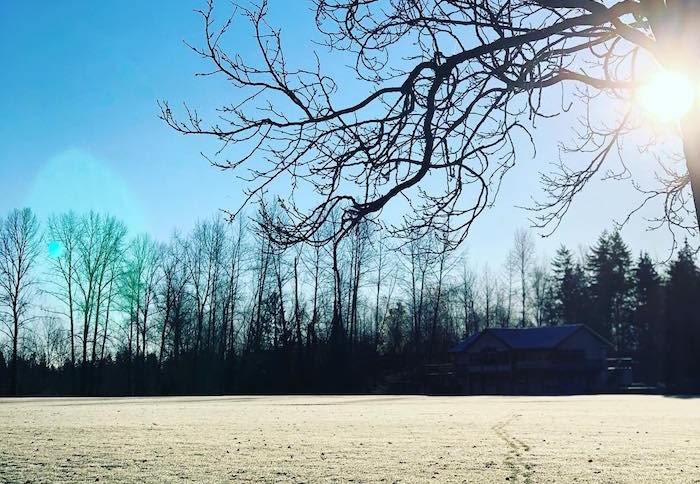Environment Canada has ended its special weather statement for Metro Vancouver. However, the wintry weather will continue through the weekend.
Earlier today, places with higher elevations saw early morning snowfall and falling temperatures. Now, the forecast is calling for a dry weekend, but with frigid overnight lows.
Bobby Sekhon, a meteorologist with Environment Canada, tells Vancouver Is Awesome in a phone interview that temperatures could dip down to as low as -2°C overnight on Saturday.
"Temperatures will be five to eight degrees below seasonal average but you will see the sun this weekend," explains Sekhon. "Monday is going to be our transition day when we start to switch from cold and dry to more of a warmer, wetter flow. So, we return to regular fall programming by about mid-next week."
While Saturday night could get as low as -2°C, there isn't expected to be any precipitation. As a result, there won't be any threat of snow going into the weekend despite the sub-zero temperatures.
Heading into the Winter
This year, Sekhon says there isn't a clear prediction for the winter forecast due to a couple of competing factors.
"Right now we're seeing pretty warm sea surface temperatures out in the Pacific Ocean and that tends to kind of moderate temperatures around here, too. It doesn't allow us to get overly cold--apart from the short periods of modified arctic air like we're seeing this weekend. In general, it keeps us fairly warm, with the warm ocean nearby," says Sekhon. "But through the fall that might deteriorate as more storms come through."
This winter is also expected to be a La Niña winter, which generally means that the south coast of B.C. will see cooler temperatures throughout the winter. However, Sekhon notes that that typically doesn't come in to effect until late December or early January.



